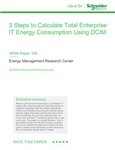The Biden Administration has laid out governmental guidelines for carbon offsets.
In a document released on May 28, the government outlines "voluntary principles" that US participants should "embrace" when it comes to carbon offsets.
The document notes that: "Widespread confidence in the integrity of credited emissions reductions and removals is critical for voluntary carbon credit markets (VCMs) to reach their potential," while acknowledging that researchers and journalists have found that "several popular crediting methodologies and activities that rely on them have not produced the decarbonization outcomes they claim."
Carbon offsets are designed to cancel out the climate effects of business activities, for example, funding wind or solar projects, or planting trees.
The arguments against carbon offsets of this sort range from the assertion that renewable energy projects would have been built regardless of the companies funding them, and it can be extremely hard to measure the effectiveness of offsets such as planting trees.
Treasury Secretary Janel Yellen said in a statement: "Voluntary carbon markets can help unlock the power of private markets to reduce emissions, but that can only happen if we address significant existing challenges.”
Yellen added of the newly released document: "The principles released today are an important step toward building high-integrity voluntary carbon markets."
The document notes the importance that one carbon credit truly represent one ton of carbon dioxide that has been reduced or removed from the atmosphere "beyond what would have otherwise occurred."
Other noted concerns include the need for credited activities to respect local communities and human rights, and the worry that some purchasers may prioritize price and quantity over the integrity of credits.
The guidelines presented by the US government require carbon credits and the activities that generate them to be unable to occur in the absence of the company's contribution, cannot be double issued, must be quantifiable, and must keep the emissions out of the atmosphere for a specified period of time, among others.
Additional guidelines tackle the need for VCMs to avoid environmental and social harm, require corporate buyers to prioritize emissions reductions within their own value chain, to publicly disclose the nature of their purchased and retired credits (and those public claims should only be for credits meeting high standards), and to contribute to "efforts that improve market integrity" and facilitate efficient market participation including lower transaction costs.
“There are credible estimates that the voluntary carbon market could grow to 10 or 20 times what it is today, and then you’d be talking about real money to tackle climate change,” said Nat Keohane, president of the Center for Climate and Energy Solutions, an environmental group that supports the use of carbon offsets, to the New York Times. “But we’re not going to get to that scale unless buyers have confidence in what they’re buying.”
The guidelines put forward are not binding or enforceable, and have received some criticism as being too vague and not defining a high-quality project effectively enough. The NYTimes quotes Danny Cullenward, a senior fellow at the Kleinman Center for Energy Policy at the University of Pennsylvania as arguing "Absent the government doing something to address the bottom of the market through enforcement, I don’t see any of the low-quality credits going away.”
Regardless of criticisms, hyperscalers including Microsoft, Amazon Web Services, Google, and Oracle are all proponents of carbon offsets.
In 2023, Amazon invested in multiple carbon capture efforts that aimed to remove 250,000 metric tons of carbon over the next decade, while Microsoft signed for 32,000 tons of biochar carbon credits.
2024 has seen Microsoft signing several more carbon offset agreements. In February, the company signed for 27,600 tons of CO2 to be captured and stored in waste concrete by Neustark. This was followed in May by one million tons of credits from the Avedøre power station in Copenhagen, which is operated by energy company Ørsted, a 1.6 million ton reforestation carbon credit project in Panama, and 36,000 tons of carbon credits from a biochar project in Canada.
In March 2024, Google committed to investing $35 million into carbon capture projects to match the Department of Energy’s (DOE) Carbon Dioxide Removal Purchase program dollar to dollar.
Earlier this month, Google, Meta, Microsoft, and Salesforce formed a carbon removal coalition. The companies collectively committed to contract up to 20 million tons in nature-based carbon removal credits by 2030.
More in Sustainability
-

-

Sponsored Advancing sustainability
-




